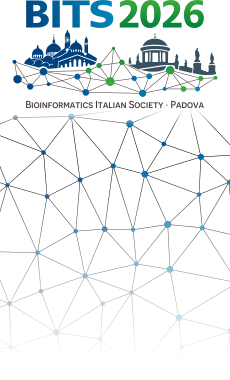PhD position
Identification of gene regulation mechanisms by integrative and massive analysis of sequencing data.
Scholarship context :
This PhD scholarship is part of an INSERM-Region scholarship obtained for the "ReMap-ALDH" project. This project is a collaborative effort between an academic partner (Dr. Benoît Ballester, TAGC INSERM U1090 Marseille, France) and a private partner (Advanced BioDesign, ABD, France).
The PhD will start in december 2019 and is funded for three years.
Scientific context
Aldehyde dehydrogenase (ALDH) activity is high in many types of cancer, and has been widely associated with poor prognosis, high tumorigenic potential and drug resistance. Our partner Advanced BioDesign has identified an ALDH inhibitor (aldehyde dehydrogenase) called DIMATE as a therapeutic candidate in the treatment of cancer. The multidisciplinary ReMap-ALDH project is at the crossroads between bioinformatics development, cancer biology and big data analyses. In this project we propose to carry out an exhaustive annotation of the regulatory elements of the human genome essential to the understanding of the regulation of ALDHs genes.
The ReMap-ALDH project is structured around two axes, an axis for very large-scale NGS bioinformatics analyses to create a regulatory landscape in human (ReMap project, See Refs.), and an axis on the fine identification of the regulatory mechanisms controlling ALDH genes involved in cancer.
The two axes are already under development, the two partners TAGC-ABD are already working on each of these axes. This project combines complementary bioinformatics approaches, bioinformatics analyses of big data NGS for the ReMap project, with fine bioinformatics analyses for regulatory mapping of the ALDH genes for the private partner ABD.
-
Axis 1: ReMap development: creation of the largest regulatory catalogue in human
-
Axis 2: Fine mapping and deep analyses of ALDH gene regulation elements
Axis 1: Development of ReMap: catalogue of regulatory regions in humans.
The candidate will manage the ReMap project, which involves: maintaining/updating/developing Python/SnakeMake pipelines for ChIP-seq data processing for ReMap, deployment of the pipeline on HPC clusters, updating the ReMap catalogue with the latest sequencing data in humans and/or other species. The candidate will be in charge of the ReMap data production, and downstream analyses.
Axis 2: Fine mapping of regulatory elements of ALDH genes and functional validation.
The objective is to create a very high definition mapping of the regulatory elements that play a role in the expression of ALDH genes. Through the identification of binding sites (TFBS, motifs), the identification of expression profiles (analyses of data Recount2, RNA-seq), and variants around ALDH genes we want to identify all the mechanisms for regulating ALDH genes.
This thesis project combines two bioinformatics approaches, one large scale to integrate NGS ChIP-seq data, and a second bioinformatics approach using results from the first axis on the detailed analysis of regulatory landscape (RNA-seq, TFBS, Variants etc...) in a specific biological context.
The objective is to identify transcriptional factors potentially involved in ALDHs gene regulation
And identify the co-expression network(s) of ALDH genes using public RNA-seq data (Recount2).
Required profile
The profile is 100% computational.
We are looking for a PhD candidate with a Master's degree in Bioinformatics/Computational Biology (or equivalent), with a solid experience in Python, and experience in handling very large NGS biological data sets (ChIP-seq, RNA-seq, etc.).
Mandatory experience :
Strong programming experience in Python
Good experience in R
Strong experience in handling biological data NGS (ChIP-seq, RNA-seq, etc.)
Experience in creation of an analysis pipeline and production pipeline
Desired experience:
Usage SnakeMake (workflow management tool)
Usage of cluster compute resources (type HPC)
Good communication skills
How to apply ?
You can apply in either French or in English.
If you are interested, please send before July 14, 2019 to benoit.ballester@inserm.fr :
- a detailed CV (with experiences, and full contact details: e-mail address, telephone number)
- a cover letter
- results of Master1, Master2, or equivalent (if available)
- letter(s) of recommendation
For more information, please do not hesitate to contact: Dr Benoit Ballester benoit.ballester@inserm.fr T: +33 4 91 82 87 28




